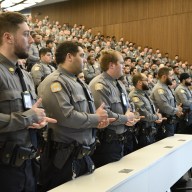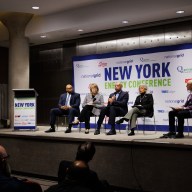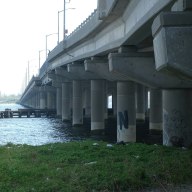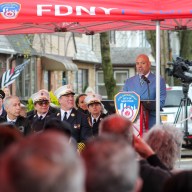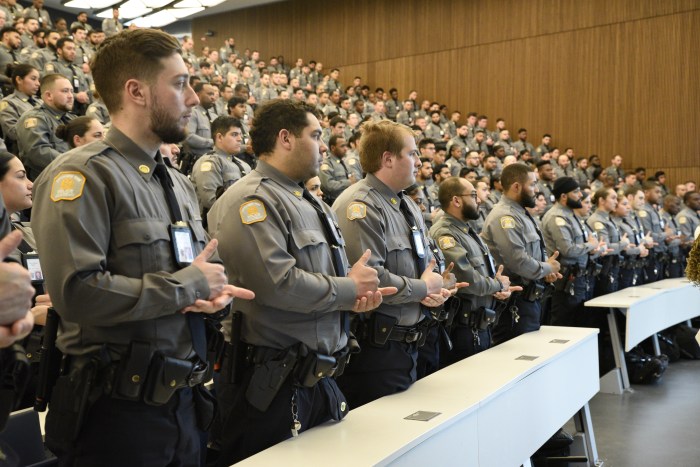By Kathianne Boniello
Members of a civilian advisory group at Bayside’s Fort Totten urged a representative of U.S. Rep. Gary Ackerman (D-Bayside) last Thursday to help the U.S. Army get funding to investigate and clean up pollutants at the Civil War-era fort in the upcoming months.
In October 1999 the cleanup at Fort Totten temporarily lost funding when the federal monies for the Formerly Used Defense Sites program, which oversees Totten, ran out. Ackerman later obtained about $400,000 for the project.
In addition to funding, the Coast Guard Restoration Advisory Board also discussed some preliminary results of this summer’s testing for mercury and other contaminants at the base and elected a new community co-chair last week.
The Coast Guard Restoration Advisory Board, a civilian group whose mission is to work with the Army to clean up contaminants at Totten, which was decommissioned in 1995, has been riddled with internal arguments over the past year. The progress of the cleanup has also moved at a snail’s pace during that time.
At the urging of RAB member and City Council candidate Joyce Shepard and newly elected community co-Chair Bob LoPinto, Ackerman aide Rafael Lieber said he would see what the congressman’s office could do to ensure that funding of the project continued without interruption next year.
Acknowledging the politics of federal funding, Lieber said “you have to be careful how and when to ask for this money.”
Lieber’s appearance marked the first time in more than a year that a representative from Ackerman’s office had attended a Coast Guard RAB meeting.
The question of available funding hung over discussions of whether or not the Army would be able to conduct additional testing in Little Bay to determine the full extent of contamination.
Totten was decommissioned by the Army in 1995 during a wave of base closures around the country. Mercury was discovered at the Civil War-era fort in 1985 by the U.S. Coast Guard.
The Army, which vacated the base in 1995, agreed to remediate the mercury in May 1998 but has since backed off that promise. The city Fire Department was slated to take over the base as parkland in less than a year and a half.
Because the Coast Guard owns a small section of the base, both the Coast Guard and the Army have moved to deal with contaminants at Totten by forming RABs.
Army Co-Chair David Brouwer said a full draft report on this past summer’s test results should be available by the group’s next meeting, slated for May 3.
Brouwer said the draft report should come out by the end of March.
Before the discussion of budgets and contaminants at the base got into full swing, the Coast Guard RAB spent more than an hour discussing how to elect the group’s next community co-chair.
In May 2000 the Army proposed a reorganization of the group to install formal operating procedures and to boost attendance. Several RAB members saw the “revitalization” as an attempt to remove Richard Jannaccio, who has often clashed with the Army, from the co-chairman position. Brouwer has repeatedly denied that claim.
Out of the about 15 civilians in the RAB, only nine attended last week’s meeting. Despite the lack of formal operating procedures, the group developed an on-the-spot election process, taking nominations for the co-chair position from the floor.
After two different votes during which one candidate disqualified himself from the running, a third vote broke a tie between Jannaccio and LoPinto, giving LoPinto the position in a 5-3 decision.
LoPinto was community co-chair of the group before Jannaccio.
Reach reporter Kathianne Boniello by e-mail at Timesledgr@aol.com or call 229-0300, Ext. 146.







